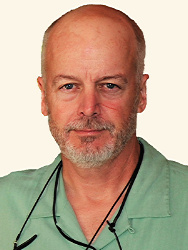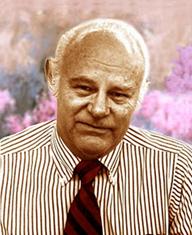Forest Hill Road
CAUTION Macon Macon-Bibb.com Moreland Altobelli

.go back to
Forest Hill
Road
CAUTION
Macon Macon-Bibb.com
Moreland Altobelli

5 Internationally Acclaimed Road Design Experts Who Agree that M-A
is Doing it (FHR) Wrong
 |
 in Macon, GA.
a dinner photo by LH. |
 |
 |
 |
| Dhiru
Thadani
http://www.asg-architects.com/ |
Michael Wallwork
PE http://www.roundabouts.net |
Rick Chellman CHESTER "RICK" CHELLMAN, P.E. Principal rchellman@nelsonnygaard.com Nelson\Nygaard Consulting Associates 430 Richards Avenue Portsmouth, NH USA 03801 603-570-9160 (Office) 603-479-7195 (Mobile) 877-299-6212 (Fax) http://www.nelsonnygaard.com/ Chellman's CV: Chellman_CV.pdf |
Walter
Kulash |
Joseph
Passonneau
Fall Line Freeway alternative concept along 7th Street. |
| Dhiru
Thadani, Lee Martin and Lindsay Holliday ... Our morning drive with Mr Thadani to : Old Miller High School 11-30-07 pics Thadani's later ideas here: http://www.macon-bibb.com/Miller.htm |
Letter: Mr. Wallwork to Bibb Commission Chairman, Charles Bishop. It describes the advantages of changing the Forest Hill Road design. It details how to save Money and Time, Who to contact, What to say to accomplish the change. in 2 formats - RTF or DOC of the letter |
Mediation expertise
focused on Safety, Design Speed, pedestrians. April 5th 2008 - Chellman report Chellman's Ideas - Summary (here) Bibb Chairman Bishop extends invitation to Chellman contingent on GDOT-Funding-Ok to restart FHR Project. (letter) Commissioner Richardson: suggests - Mr. Chellman make a presentation. On page 9 of 16 full minutes here |
"Widening roads to
solve traffic congestion is like loosening your belt to cure
obesity,"says Walter
Kulash, a traffic engineer from Orlando, Fla. - |
Illustrations of Forest Hill Rd if 4-lanes - divided - remove all homes - allow trees to grow for 50 years. |
http://www.cnu.org/board Dhiru A. Thadani, AIA is an architect and urbanist who has been in practice since 1980, and has worked on projects in Asia, Europe and North and Central America. From 1987 to 2002 he was principal in the firm Thadani Hetzel Partnership, and from 2002 to 2009 he was principal and director of town planning in the firm of Ayers/Saint/Gross, Architects and Planners. Since its formation in 1993, Dhiru has been a charter member of the Congress for the New Urbanism (CNU), and was appointed to the Board in 2005. He is a 2001 Fellow in the Knight Program in Community Building. Dhiru was born in Bombay, India and moved to Washington, D.C. to attend the Catholic University of America ........ |
|
: |
Rethinking Freeways |
Some
points that Road Officials should understand:
- Traffic Counts are debunked then clarified by Chellman -Safety is improved with Chellman plan - Costs are less, Construction is quicker. - Instead of working against the Citizens, Maybe it is time for officials to start working With the Citizens; ie the Visual Preference of New Urbanism study by Macon-Bibb Planning and Zoning - Hire Chellman to reconfigure Project. Bibb Commission already promised (later renigged) to pay him to come back for a briefing. |
|||
| |
|||
| AJC article |
The part that I find useful is this: "change orders and miscellaneous expenses -costs more than the agency spent on all road projects only a few years earlier. " because "change orders" is what has driven FHR design costs to well over $4M. And to do a $40k resurface/slip-turn-lanes/redesign would cost Less than several of the individual FHR change-orders. At 08:58 AM 12/28/2009,,,, wrote: Power struggle blocks Georgia road building By James Salzer and Ariel Hart The Atlanta Journal-Constitution http://www.ajc.com/news/power-struggle-blocks-georgia-257361.html 12:51 p.m. Saturday, December 26, 2009 Gov. Sonny Perdue offered long-suffering commuters a glimmer of hope five years ago when he announced a mammoth building program aimed at speeding up improvements to metro Atlanta's overburdened road system. But instead of relief, commuters have seen a power struggle over control of the state road-building system, as well as accusations of shoddy financial management, charges of reckless overspending, and ultimately, a slowdown of projects to ease congestion. Now, with the start of the 2010 Legislature just weeks away, state lawmakers are gearing up to take their third shot at providing the money needed to reinvigorate the war on traffic. They will debate whether to ask voters to consider a special sales tax for transportation. Similar proposals failed during the 2008 and 2009 sessions, and 2010 isn't likely to provide an easier path. It's an election year, and proposals that require any kind of tax increase aren't the sort of thing lawmakers like to campaign on. And the prospects for increased transportation funding haven't been helped by the perception that the Department of Transportation fouled up the last time state officials entrusted it with big money to fix the state's traffic problems. The latest blows to the DOT came during the summer, when a state auditor's investigation accused a key official of abusing his authority and making the agency's books look better than they were. A separate federal report concluded that the DOT's transit program was riddled with financial management problems. Since the agency's problems became public two years ago, the recession has dried up gas tax revenues. Reserves were depleted and annual debt payments rising to more $400 million will eat into the department's road budget in coming years, making it more and more difficult to pay for new projects without a new tax. The result has been thousands of construction-industry layoffs in the midst of a deep recession and major setbacks in the epic battle to get drivers moving. "This has all come together at the worst possible time," said Mike Meyer, a Georgia Tech engineering professor and a former top transportation official in Massachusetts. "Several storms came together at the same time to create a super-storm." Gena Evans, the much-criticized commissioner Perdue brought in to take over the DOT in 2007, called the DOT problems "a disaster." "They are going to be fighting this for several years to come," Evans said. Perdue announced his $15.5 billion "Fast Forward" program in 2004 to much fanfare, with metro Atlanta officials calling it a good first step in attacking the area's traffic congestion. "We are spending what we must to solve the problem, but we're not spending more than we can afford," the governor said at the time. Some "Fast Forward" projects did get done. The DOT rebuilt the interchange with Ga. 316 and I-85. It widened Ga. 400, installed highway ramp lights to regulate congestion, and is about to finish new ramps for the 14th Street Bridge over the Downtown Connector. But many projects that were completed wound up costing far more than state officials originally estimated. And for Atlanta drivers, traffic hasn't gotten a whole lot better. A financial morass The commute in Atlanta has long been the stuff of legends, as the area's population exploded and road-builders couldn't keep up. A recent report showed the average Atlanta-area commuter wastes 57 hours a year in traffic jams. Census figures from 2008 show that nearly half of all metro area commuters spend 30 minutes or more going to work, no better than in 2005. Mass transit has gotten occasional lip service, but little more. The state had historically tried to address the problem through one of its most politically powerful and independent agencies, the DOT. Through much of the 1980s, ‘90s and 2000s, the economy was strong and gas tax revenue flowed to the DOT. It was considered by statehouse watchers to be one of the last vestiges of pork-barrel politics, and its operations were a mystery to many legislators. One of the problems, some officials complained, was that it took too long for roads to be planned and built. In turn, DOT board members, often retired legislators, griped year after year that they needed more money to build all the highways and bridges Atlanta and Georgia required. Perdue's predecessor, Roy Barnes, developed plans to pump big money into projects to ease congestion. But he never got the chance to implement them before losing his re-election bid in 2002. Perdue's "Fast Forward" effort aimed to speed up construction of carpool lanes, widen suburban and rural roads, and improve interstate highways across Georgia. Within a few years, auditors said DOT spending accelerated to a pace that far exceeded Perdue's plan. DOT payments to contractors rose from $821 million in fiscal 2004 to $2.15 billion in 2008. The department's balance plummeted from $1.4 billion in 2004 to just $360 million by 2007. "We were well on our way to insolvency," said Perdue in an interview with The Atlanta Journal-Constitution. Perdue said he wasn't getting good answers from DOT officials about how the money was being spent. Former DOT board chairman David Doss, however, said the governor's staff was told early on that state officials had underestimated the cost of the work that needed to be done. State auditors were brought in, and they and Evans released reports suggesting the department was heading toward monstrous shortfalls. In the report released last summer, auditors pointed the finger at former agency treasurer Earl Mahfuz. The report suggested he instructed staff members to stop recording executed contracts near the end of fiscal 2008 and helped mislead state officials about the agency's financial picture. Auditors also noted a big increase in change orders, or money later tacked on to the cost of projects. In one fiscal year, 2007, auditors say the DOT committed to spending $717 million on change orders and miscellaneous expenses, more than the agency spent on all road projects only a few years earlier. DOT officials disputed the auditor's figures. Mahfuz declined to speak to the AJC. His lawyer, Barnes, also declined to talk on the record about the audit. Auditors said that Mahfuz and DOT officials were obligating the state for projects without having all the money available at the time the contract was signed. The audit also said the DOT risked the state's AAA bond rating, meaning the state could have to pay more to borrow money in the future. Former DOT board chairman Mike Evans, who is married to Gena Evans, said Mahfuz tried to curry favor with board members and road builders. Both Evanses say Mahfuz never gave the board or the commissioner straight answers on the agency's finances. Doss sees Mahfuz as a scapegoat and argues that the shortfalls auditors and Gena Evans publicized were made up to help Perdue make his case to wrest power from the DOT board. Whatever the cause, whoever was at fault, the end result was that Gena Evans and the DOT dramatically slowed the flow of construction money as the state headed into a recession. Projects were delayed because Evans said the state didn't have money to pay for them. The dollar amount of transportation projects out for bid went from $2.65 billion in fiscal 2007 to $484 million in fiscal 2009, which ended June 30. That $484 million included federal stimulus money. At the same time, the recession dragged down gas tax revenue, adding to the DOT's woes. The slowdown helped the DOT start building back its treasury balance, which was at about $809 million by the end of fiscal 2009, according to agency officials. But the lack of contracts for road projects led highway contractors —acccording to some estimates — to shed up to 10,000 jobs inn Georgia just as the recession started to kick into high gear last year. Bill Hammack, president of Cobb County's C.W. Matthews, the state's biggest highway contractor, said his company's peak employment approached 2,000 at one time. By this fall, the company was down to about 1,350 workers. "We had the ‘Fast Forward' Program ... we all ramped up to do all that work and without any warning or notice, it was shut down," Hammack said. "It's going to be a while before we recover from that." More than jobs have been lost. So has some of the momentum Perdue tried to create in 2004. While the money spigot was nearly turned off, the Atlanta Regional Commission, the official planning agency for metro Atlanta, prepared to cut millions of dollars in metro Atlanta-area transportation projects from its six-year plan. "We have a serious, serious funding shortfall across the board," said Tad Leithead, who was recently elected chairman of the ARC board. That goes for roads and mass transit, he said. Because of what was going on at DOT, Perdue initially said he couldn't support a proposal to let Georgians vote to raise sales taxes to pay for transportation projects. . Even if legislation passes during the upcoming legislative session, voters would have to give their blessing and it could be a few years before any money becomes available. It could be well into the next decade before the impact would be felt. New system, old worries During the last session, lawmakers couldn't agree on transportation funding. Nor did they give Perdue the power he wanted to create a new transportation agency and pick the chief executive and board chairman. They passed a watered-down bill instead. Under the old way of doing things, a DOT board member —elected by lawmakerss — would chat with a constituent about getting a road pproject on the funding list. Then the board member or a local delegation of lawmakers and/or citizens would make a request to the commissioner — appointed by the DOT boarrd — to get it done. Under the new system, the DOT booard is still elected by lawmakers and the chief executive is still chosen by the board. But a director of planning, who reports to the governor, has to be up front on the progress of projects with an array of government officials. During the debate on the bill, the DOT board fired Evans, Perdue's choice as commissioner. They hired former House Transportation Chairman Vance Smith, who was then-House Speaker Glenn Richardson's pick for the job. House Majority Leader Jerry Keen (R-St. Simons Island) recently said legislative leaders had reached a consensus on a transportation funding plan. But then a sex scandal brought down Richardson. A new House leadership team will be working on the issue. Perdue thinks the new system at DOT will mean more transparency, letting state officials and the public know what's going on. It's unclear, however, if it will mean any improvement in getting transportation projects done faster and more efficiently. Sam Olens, chairman of the Cobb County Commission, said the problems at DOT delayed projects that could have helped relieve congestion in Atlanta. But, he added, they also led to a "day of reckoning." "There was a very much needed process to find out all the projects that were on the books, where they stood, and which projects were appropriate for funding and which weren't," he said. Meyer, the Georgia Tech engineering professor, said two or three years ago, in the midst of "Fast Forward," there was a sense that the state was investing in transportation. "Now I think we're back to being concerned about money," he said. "Twenty years ago ... there was a sense that we've got a problem [on transportation] but at least we're making a dent in it," Meyer said. "Now, my sense now, primarily because of a lack of money, most people are just kind of saying we're not going to even make a dent in it." ------------------------------------ How we got the story AJC reporters reviewed the state auditor's report on the DOT when it came out last summer. They also interviewed the auditors involved and read transcripts of interviews the Inspector General's Office did with DOT officials involved in the DOT funding audit. The story of what happened, and what it means, was then pieced together using DOT records, audit records, and interviews with Gov. Sonny Perdue, lawmakers, DOT board members, former DOT officials, highway contractors, regional officials and transportation experts. |
||
|
|
- CAUTION Macon - |
| Eisenhower Parkway Extension |
go back to Forest Hill Road